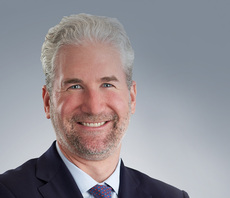Shares in the polling and analytics company YouGov (YOU) have taken a battering after a profit warning spooked investors away from the company last week.
The London-based market research and data firm, which is well known for its political polling, has plunged over 44% to £4.47 over the last five days. Its market capitalisation is now around £507 million.
But how are the stock’s backers reacting to the disappointing news?
It is actually difficult to tell. YouGov is something of an elephant in the room in the City, and fund houses with the biggest exposures to it seem reluctant to comment.
Nevertheless, some are talking. John Moore, senior investment manager at RBC Brewin Dolphin, said that, from now on, YouGov will have to focus on rebuilding trust around its longer-term growth plans.
“YouGov is a data business that should be a long-term beneficiary of artificial intelligence (AI) but in the short term it has been broadsided by declines in its fast-turnaround research services,” he told Morningstar.
“This will come as a shock to shareholders, who were guided toward high levels of visibility in the previous statement, and wider observers who might think that, in such an election-heavy year, the business should be well placed.
“From here, rebuilding trust around the longer-term growth narrative and executing on areas like the Consumer Panel business in 2025 will be key to the share price recovering.
But according to Laurence Hulse, investment director at Dowgate Wealth, the fund sold out of the polling company months ago. The fund’s performance has been a mixed bag, recording negative performance of -3.02% in 2023, although its year-to-date return has picked up to 9.06%.
The Athelney Trust (ATY) held a 2.4% exposure, as of March 31, 2024.
The trust, which invests solely in UK small cap companies, has seen its share price trail the Morningstar UK Small Cap Index, with both reporting -2.8% and 8.9% over one year, respectively.
London-based asset management firm Liontrust also has a significant stake in YouGov.
The polling company features in both Liontrust’s Morningstar Bronze-Medal rated UK Smaller Companies Fund, as well as the Liontrust GF Special Situations Fund at 2.36% and 1.8%, respectively. Both funds have experienced outflows over the last year.
The Liontrust UK Smaller Companies fund has seen redemptions of more than £149 million, while Liontrust GF Special Situations witnessed outflows of more than £63 million.
However, the Liontrust GF Special









